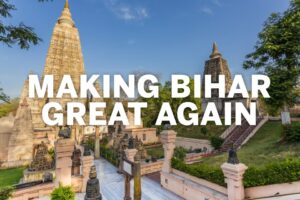The Centre has formed a committee for “One Nation, One Election” under the leadership of former President Ramnath Kovind. The concept of “One Nation, One Election” has ignited fervent debates across India’s political landscape. Advocates assert that this ambitious proposal could streamline the country’s electoral process, reduce political polarisation, and bolster administrative efficiency. However, detractors raise valid concerns about its feasibility, potential to undermine federalism, and impact on regional diversity.
Proponents argue that holding simultaneous elections for both the central and state governments would curb the continuous cycle of elections, saving substantial financial resources and time. This, in theory, could free politicians from the constant campaign trail, allowing them to focus on governance and policy implementation. A singular election event could also encourage voter turnout by consolidating the election fervour and increasing voter engagement.
Yet, the intricacies of India’s diverse political landscape pose significant challenges. The nation’s myriad languages, cultures, and regional issues necessitate a tailored approach to governance. Critics contend that a uniform election schedule could marginalise regional concerns, potentially eroding the unique identity and autonomy of individual states. Moreover, the staggered election system has historically allowed citizens to hold governments accountable at various levels, acting as a check against centralised power.
Federalism, a cornerstone of India’s constitutional structure, could be jeopardised by the implementation of a single election model. The current multi-phase election system is rooted in the diversity of Indian states and their distinct needs. Transitioning to a synchronised election might inadvertently diminish the power of states, undermining the principle of cooperative federalism.
Addressing logistical hurdles is another formidable task. The sheer scale of India’s electorate, coupled with the logistical complexities of conducting a nationwide election, presents a logistical nightmare. Ensuring security, accessibility, and fairness on such a massive scale requires meticulous planning, advanced technology, and airtight execution.
While the “One Nation, One Election” proposition holds the promise of efficiency and reduced political volatility, it also raises valid concerns about diversity, federalism, and logistical feasibility. It is imperative that such a monumental transformation is guided by a spirit of cooperation, careful deliberation, and a commitment to preserving the essence of India’s democracy. Balancing the interests of both the nation and its diverse states is paramount to ensuring the long-term success of any electoral reform.




